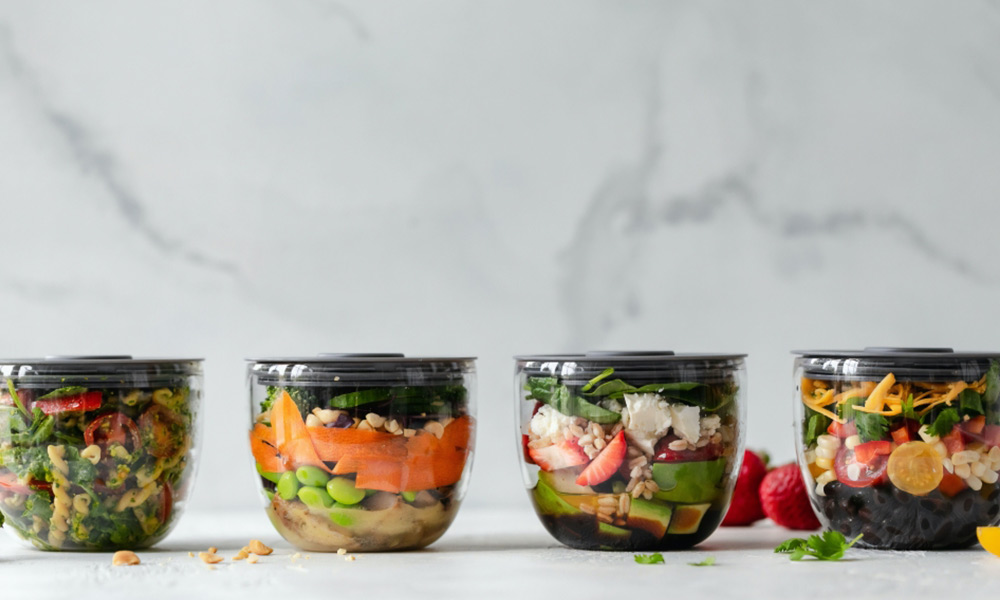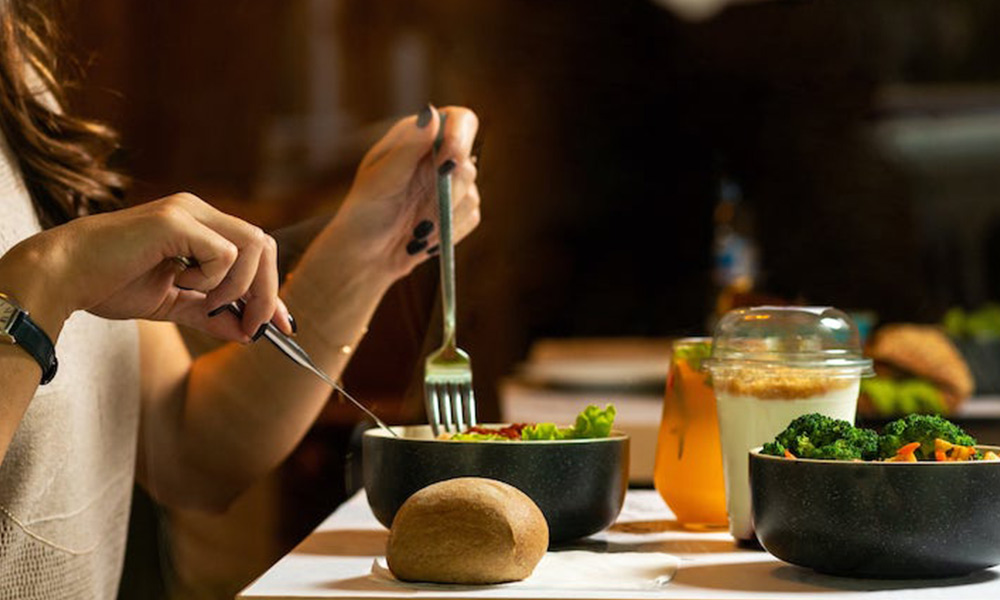Eating healthy is vital for anyone who wants to regain and maintain strength and stamina, but figuring out a new nutrition plan can be challenging. Cancer treatment often creates a “new normal” for patients as they experience greater fatigue, weakness, and fluctuations in their weight. In most cases, the nutrition plan for patients after treatment looks different from the one they were encouraged to keep during treatment. Developing a habit of planning ahead with a weekly meal prep routine has been one of the most helpful and effective strategies for Survivor Fitness participants. Meal prep is an easy way to embrace mindful eating habits. It can also help you find healthy solutions to eat when you’re exhausted or not feeling up to cooking.
1. Start small and keep your meals simple.
Developing a routine of weekly meal planning can seem overwhelming, especially if you’ve never done it before. It’s important to give yourself grace and take small achievable steps in the same way you do with other areas of life.
You can begin by planning out just a few meals or snacks for the week ahead. It’s also helpful to start with simple meals that are easy to prepare and cook. This can help you find a rhythm that works for you.
2. Include a good balance of protein, vegetables, carbohydrates, and healthy fats.
One of the most beneficial aspects of meal prep is that it allows you to see what you’re eating and maintain a healthy and balanced diet throughout the week. As you look at your plan, make sure you have a healthy balance of proteins, vegetables, carbohydrates, and healthy fats.
As a cancer survivor, it’s essential to choose the right nutrition plan based on your unique circumstances. That’s why we believe in helping our Survivor Fitness participants connect with a nutrition specialist if they need support. If you can’t connect with a nutrition specialist, there are many resources online for post-treatment meal plans.
3. Incorporate healthy snacks into your plan.
Snacks are an area that’s easy to overlook when planning and preparing meals for the week. But finding simple, easy, and healthy recipes allows you to snack on foods that will fuel your recovery.
Here are a few of our favorite healthy snack recipes to incorporate into your weekly meal prep.
4. Keep your pantry stocked with healthy staples.
Even the best meal preppers run into days where they forget an ingredient. A quick meal made from the items in your pantry is perfectly fine, especially on the days you don’t feel up to making anything else. It’s beneficial to stock your kitchen with nutritious foods so that you can still find healthy options if you want to add an item to a meal or cook something entirely different that day.
5. Experiment with how and when you prepare meals in advance.
Cooking or preparing meals in advance is often a key component of successful meal prep. However, forcing yourself into a rigid structure can leave you discouraged.
Each person’s approach to meal prep is unique. It’s important to find what works for you based on your dietary needs, family circumstances, physical capabilities, and season of life. Finding a sustainable weekly meal prep routine that makes your life easier is the goal. It doesn’t matter how you get there.
6. Find creative ways to get the family on board.
Meal prep can be difficult when you’re responsible for feeding other people, especially families with children. Enlisting your family in the planning process is one way to avoid these challenges. You can get their input on the menu for the week or even invite them to help you prepare meals. Having a theme for certain days of the week is another way to discover new recipes and generate excitement throughout the week.
7. Don’t be afraid to ask for help.
It’s important for anyone (especially cancer survivors) to listen to what their body needs and ask for help when they need it. This might look like asking family and friends to help you prep meals during the weekend. Instead of going past your limits on high-energy days, remember that it’s ok to take breaks. Asking for help is an important part of developing a sustainable meal prep plan for you and your family.
Planning and preparing your meals can be a great habit to help you maintain a healthy diet and eliminate the frustrations of figuring out what you’re going to eat every day. But it’s important to remember that progress is the goal, not perfection. If you’re a cancer survivor looking for more nutritional guidance and support, Survivor Fitness is ready to help! Visit our website or contact our team to learn more about how to become a Survivor Fitness participant today.

